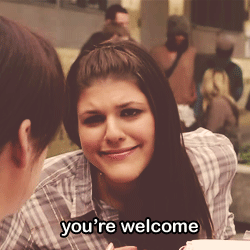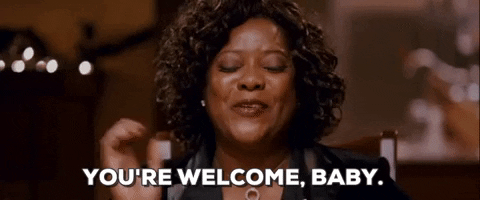英语听力课堂(www.tingclass.net)是公益性质的英语学习网站,您可以在线学习英语听力和英语口语等,请帮助我们多多宣传,谢谢!
回答Thank you用You're welcome?
2020-11-25 09:04:52 每日学英语你就要回答 You're welcome.
这个是小学的英语知识了
为啥现在却听起来像讽刺?
我们从小都生活在应试的环境里
对当地的实际使用习惯
并没有作一定的了解
所以今天,小编就要
带大家重新认识一下

You're welcome的问题
▼
In the past several decades, there seems to have been a decline in the use of the phrase in casual conversation. It would be easy to blame millennials for this linguistic phenomenon. But etiquette experts believe that the reason for the shift isn't because of generational tendencies, lazy behavior, or even rudeness. The decline of saying "you're welcome" actually comes from something quite surprising: a desire to be more considerate.
在过去的几十年里,这个短语在日常会话中的使用似乎有所减少。人们很容易将这种语言现象归咎于千禧一代。但礼仪专家认为,这一转变的原因并非世代相传的趋势、懒惰行为甚至是粗鲁无礼。不愿说“you're welcome”实际上是出于一种相当令人惊讶的原因:想要更体贴一些。
"Maryanne Parker, founder of Manor of Manners and author of Posh Overnight: The 10 Pillars of Social Etiquette, tells CountryLiving.com. She explained that "you're welcome"—a phrase that is meant to be courteous—is sometimes perceived as insincere or snarky.
《优雅一夜:社交礼仪的10大准则》一书的作者玛丽安娜•帕克解释说,"you're welcome"这个礼貌用语有时会被认为是不真诚或刻薄的。

Comedians were among the first to capitalize on the sarcastic potential of 'you’re welcome' ," wrote The New York Times’ Amanda Hess. Following that ironic take on the expression, a cultural shift has made it common to say "you're welcome" for no reason at all—signaling that no thanks are necessary because you're already aware of how great you are.
《纽约时报》的阿曼达•赫斯写道,喜剧演员是第一批利用"you're welcome"中潜在的讽刺意味的人。在这个讽刺的用法出现之后,文化的转变使得无缘无故地说"you're welcome"成为普遍现象,表明出了你不需要感谢,因为你已经知道自己有多棒了。

但其实这一切也都要和你当时的环境、语气、动作相结合才能真正得出“you're welcome”到底是什么含义。相比之下,也有更多回复谢谢的方式被广泛使用。快来记一下吧~
No worries.
I know you’d do the same for me.
My pleasure.
It was a pleasure.
Easy, peasy man!
I am happy to have been able to help.
Glad I could help.
Anytime.
Never mention/ Mention not.
今天的内容都学会了么?
欢迎评论交流心得~